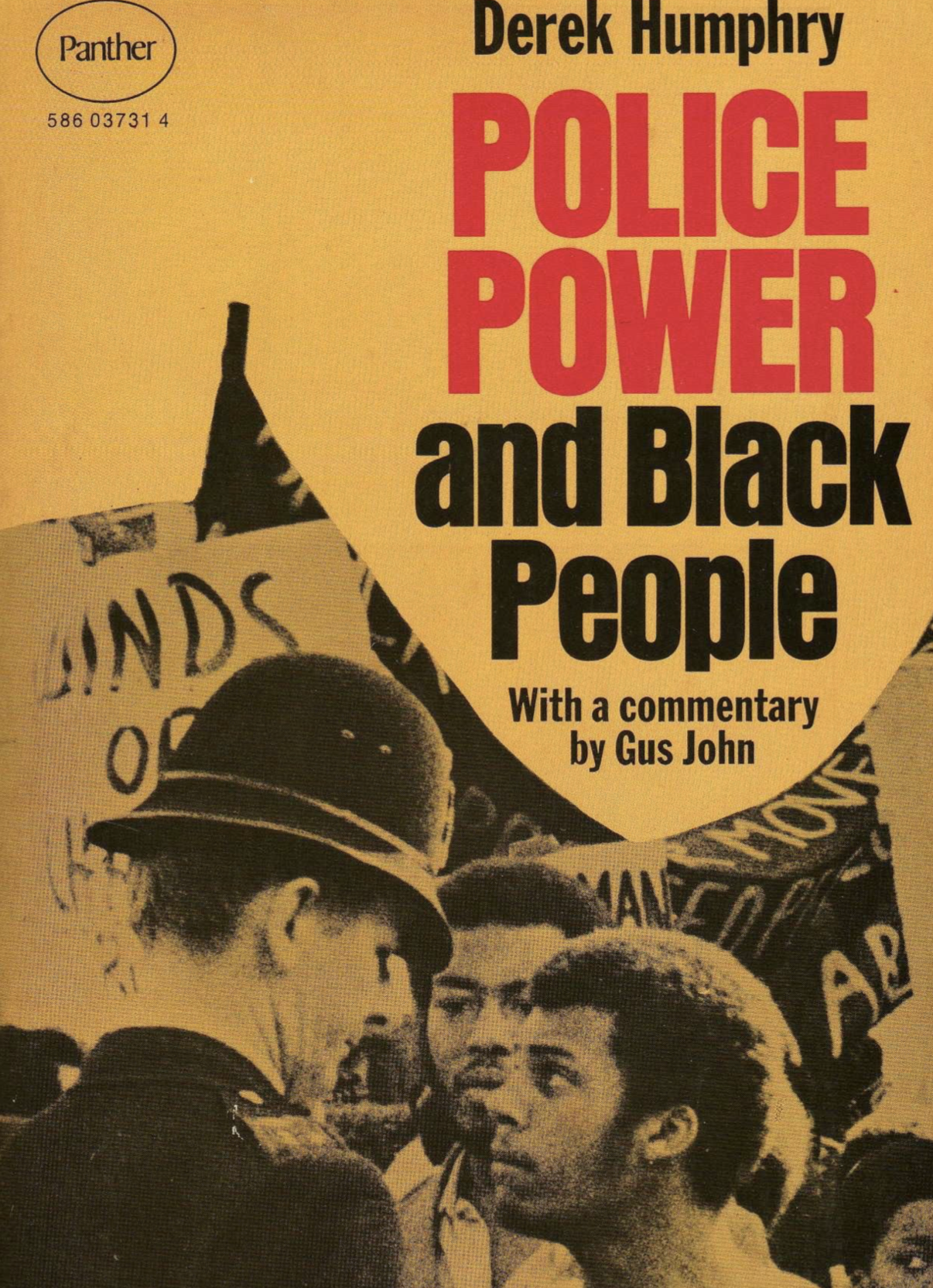Book review on Police Power and Black People by Derek Humphry (Penguin 1972)
Vic Turner, Bernie Steer and their fellow dockers are having a hard time trying to persuade the country that legitimate economic grievances cannot be legislated away or that laws which victimise one sector of society for the benefit of another need to be deliberately and systematically flouted, for justice itself to survive. Black people need no such persuasion. They do not require overtly racist or frankly anti-working class legislation to tell them that, even in the eyes of the law, they are people apart and below.
For however impartial the law is deemed to be in the abstract, they know that in practice-a practice which embraces not merely the immediate enforcers of the law but the courts of the land, its Home Secretary and government as well-it is loaded against them. So that when Derek Humphry quotes the case of the magistrate who criticised a black defendant for not allowing the police to enter his house without search warrant (“it would not have happened if Mr Quaye had not stood on his legal rights and had allowed the two women constables to search the house”) or that of the (Labour) Home Secretary who condemned a Nigerian diplomat, who claimed he was beaten up by the police for allegedly stealing his own car (CD plates and all), without hearing his side of the story, black people are not one whit surprised. What surprises them is whites’ surprise at what, to the blacks, are everyday occurrences.
Derek Humphry’s Police Power and Black People puts all excuse to rest; it breaks the conspiracy of silence. If on occasion he raises his voice an octave or two higher than white sensitivity can bear, it is because he is moved not only by a concern for justice, but by is doing to itself in the pursuit of racism. And for that very reason, Humphry, in this remarkable piece of responsible social reporting, brings out clearly and dramatically the injustices suffered by black people at the hands of the police. He does this by examining in depth a handful of representative cases.
In the process, he shows up the widespread use of ”planting,” the unjustified use of dogs, the types of provocation used to elicit “verbals” (“what a man says when I arrest him that he afterwards denies in court) or charges of assault, the danger of offering oneself as a witness (if one is black) or of standing on one’s legal rights (if one is black) or of claiming diplomatic immunity (if one is black). Social position may protect white people from excessive police zeal, but blacks are afforded no such protection: colour cuts across class. Equally, strikes by white trade unions receive minimal police attention, but all-black strikes are likely to have the police operating as strike-breakers: colour cuts across class.
The author is equally excoriating of a magistracy that is prejudiced in favour of the police if not against the blacks themselves, barristers who are “either inadequately or almost totally unbriefed,” a jury system which pays no heed to the peers of blacks as blacks, and press reporting of cases which are biased, inadequate or plain sensational. He shows, in effect, that the racism prevalent in the police force runs all through British society-“That particular sickness is neither more nor less in the police than it is in the whole population.’
But the police are better placed, both in terms of immediacy and of power, to show that sickness-and Humphry is the first to acknowledge this. They represent, after all, the final arbiter of state power, force, and for that very reason are in a position to translate their attitudes into action, and are prone to do so. As custodians of state power, they are required to conserve society from change; but at the same time they are required to function in areas which are changing rapidly. Their ideology binds them to the rearguard of change, their operations place them in its vanguard.
As one black teenager remarked to Gus John (to whom Derek Humphry has rightly assigned the task of assessing the black view), “. . .schools are violent in condemning black kids to a life of failure. The society is violent because you’re frustrated in your earnest, well-intentioned desire to use the ability you have because some guy decides he doesn’t like the look of you; and then they send along the fuzz to round you up as some bloody misfit.”

